Features¶
Here are some of the features and advantages researchers using Lookit benefit from:
Common resources and processes¶
A time-tested approach to consenting families online that has been approved by review boards at 50+ institutions.
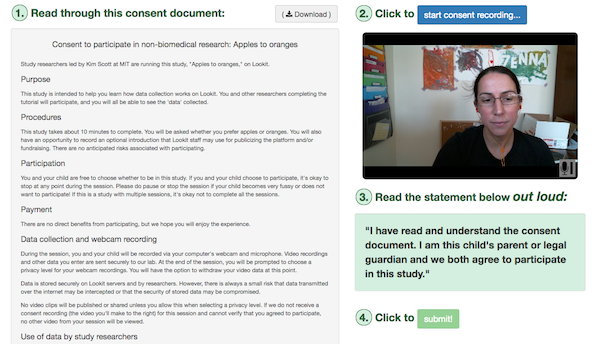
A standard family interface that minimizes friction when participating in studies from a variety of research groups.
Access to a shared userbase of families with young children. Stored child and demographic data become available to you when a child participates in your study.
Community and documentation¶
- Active research user community and responsive technical support.
- 100% open source, forever. That means all of the source code that Lookit uses is publicly available, and you are free to extend and use it for your own purposes.
- Free to use.
- Extensive and actively maintained documentation (you’re looking at it!), including a step-by-step tutorial to get started.
- Community review and feedback on studies prior to data collection, to improve data quality and ensure a high standard of family-friendly design that benefits all users.
Study management tools designed for developmental researchers¶
Built-in consent video management: review consent videos in the web browser and confirm that the parent provided informed consent to participate. Information about this confirmation is stored on the Lookit server and only data from sessions with confirmed consent are available for viewing or download.
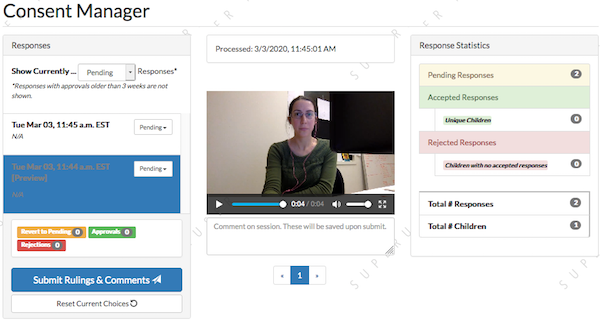
Convenient data downloads, thoughtfully designed to protect participant data while maximizing potential for reuse and sharing.
- Data dictionaries are provided for all CSV downloads to make it easy to share anonymized raw data upon publication.
- Collect video sharing preferences in a standard format
- Data are only available once consent is confirmed!
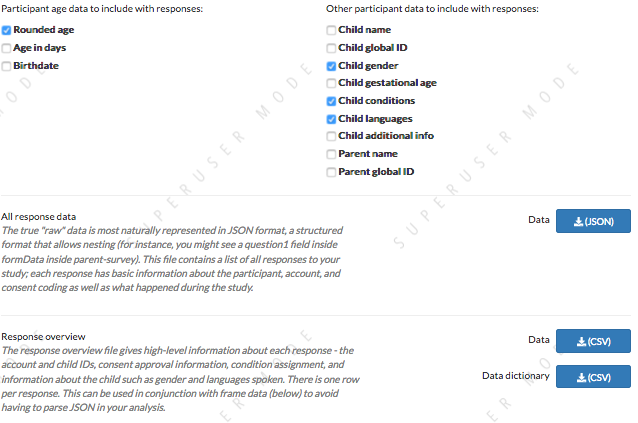
Set study eligibility criteria based on age, gestational age, gender, languages spoken, and other characteristics.
Contact participants to invite them to another session of a longitudinal study, provide compensation, or ask clarifying questions. Email records for each study are accessible on Lookit and you can download them for your records.
For longitudinal studies, determine which tasks and stimuli to use based on prior session data and child age if needed. We have run studies with as many as 12 longitudinal sessions within a few months!
Start and stop data collection at any time.

Provide feedback to parents on study sessions.
Preview exactly how your study will work ahead of starting data collection, including collecting sample data so you can set up analysis workflows ahead of time. You control which researchers can preview your study, and can share it by link with all Lookit researchers to get feedback if you choose.
Create your own lab on Lookit to share studies among your lab members. Easily collaborate on studies with fine-grained permission roles for individual studies.
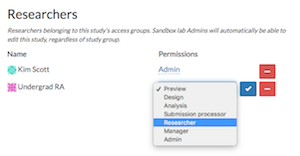
Unlisted (non-discoverable) studies allow you to invite only specific families (e.g., in-lab participants or members of a registry) to participate based on a unique study link.
Studies are deployed in their own containers, using a snapshot of the experiment runner codebase. Updates to the code never affect how your existing study works unless you choose to update!
An experiment runner custom-designed for developmental paradigms¶
(although we’re also interested in supporting other experiment building systems you may be familiar with!)
Use a growing library of built-in components for common developmental measures and pages - e.g., looking time and preferential looking trials, change detection trials, parent-controlled observation videos, surveys, video consent and assent
Specify your protocol using a readable JSON text format
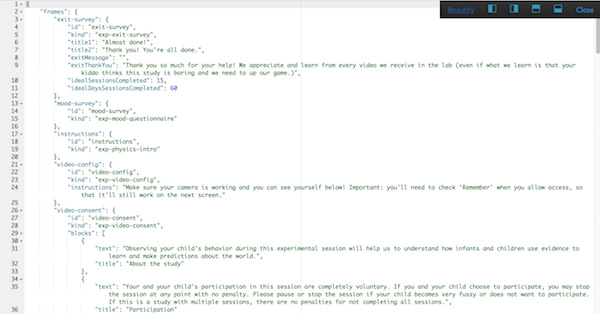
Flexibly collect video during studies, as well as event timing data relative to the video stream. Researchers have coded gaze measures (looking time, preferential looking) as well as verbal responses and parent interaction from webcam video.
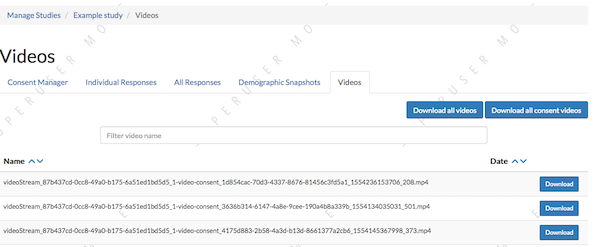
Randomize condition assignment and counterbalancing, shuffle trial or task order, personalize text or stimuli based on child characteristics, add conditional logic, and more.
Extendable for your custom games and measures; just fork the repo on GitHub, add your own frames, and tell Lookit to use your version of the code to run your study
Limitations¶
Lookit won’t be the right approach for all online developmental research! Here are some cases where other tools will likely be a better fit:
- Medical research conducted by HIPAA-covered entities or individuals. Lookit is not yet HIPAA compliant. (Note that HIPAA applies based on the status of the researcher/healthcare provider - not just on the type of information collected. Academic researchers can generally collect health information without being covered by HIPAA, and more than one hospital-based research labs have successfully negotiated data agreements allowing them to use Lookit for some types of studies.)
- Short one-off survey studies where you want to minimize time required to participate, and even asking families to create a login would be excessive
- Studies that pose appreciable risks or harm to participants or the world (e.g., you’d like to try teaching children about “the controversy” regarding climate change)